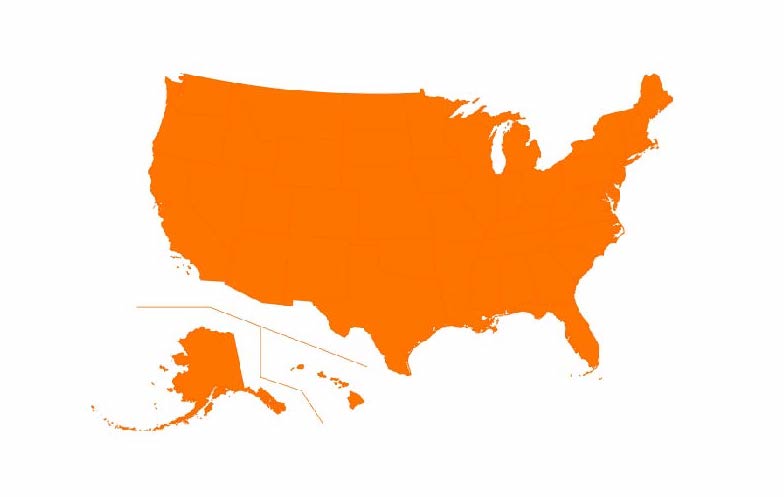KWS offers leading genetics for North American sugarbeet growers.
KWS Seeds is the sugarbeet seed industry’s leading innovative researcher in North America, devoted entirely to developing high performing, multiple-disease tolerant sugarbeet seed varieties. KWS Seeds researchers are bringing genetics to North America adding more value than ever before – accelerating productivity each time a new hybrid is introduced.
Each year, KWS Seeds evaluates more than 60,000 nursery plots and serves as a testing partner, offering nursery trial services to sugar cooperatives and official testing agencies for Aphanomyces, Rhizoctonia, root aphid, and Cercospora screening. Sugarbeet seed research and breeding activities are long-term commitments and require a dedicated effort, often taking up to 10 years to develop a new hybrid.
KWS played an integral role in the development and introduction of Roundup Ready® sugarbeets for North America and is well-equipped to bring the next generation of herbicide tolerance to sugarbeet growers. The new technology will confer tolerance to three different herbicides – glyphosate, glufosinate, and dicamba – and is expected to be commercially available sometime this decade, pending regulatory approvals.
KWS' innovative and comprehensive research program is based on the world’s most expansive vault of sugarbeet germplasm. With over 250 employees in North America, KWS also has the most responsive team working for sugarbeet grower success in North America. Two coordinated breeding programs – one based in Kimberly, Idaho, for curly top, Rhizoctonia, and rhizomania; and the other based in Shakopee and Moorhead, Minnesota, for diseases such as Aphanomyces, Fusarium, root aphid, and Cercospora – work toward mutually beneficial goals that support sugarbeet grower operations.
Research & Breeding Stations
Five sugarbeet breeding stations in North America are working for sugarbeet grower productivity. Read more about the coordinated programs conducted at these research stations.
In the late 1970s, KWS Seeds established a dedicated research location focusing on research and breeding activities for the dry land, non-irrigated regions of North American sugarbeet production. The station now includes 70 acres of irrigated land, a machine shop, seed mill and processing equipment, research greenhouses, and equipment storage buildings. At this same time, the station developed testing and screening protocol for Cercospora, and in 2010, these trials were relocated to the Randolph station.
In 1995, a disease tolerance nursery for Aphanomyces root rot was created which coincided with disease pressure in the regions. Between both nurseries, over 12,000 coded genotypes are screened by nine full-time researchers that manage and evaluate all the coded entries for these two disease nurseries.
In 1978, an additional facility was needed to conduct field and yield trials for Minnesota, North Dakota, Colorado, Nebraska, and Eastern Montana. Eighty acres of land were purchased outside of Moorhead and an office building and research facility were erected to support trial activity. Field trials are conducted as proprietary activities that aid in the development of hybrids offering tolerance to Fusarium.
In 2010, KWS Seeds expanded its testing locations to Randolph, Minnesota. More than 150 irrigated research acres are dedicated to field trials to evaluate yield, sugar, new traits, and Cercospora tolerance. The trials augment the Shakopee research station activities, and the research and breeding teams split time between the Shakopee and Randolph stations, coordinating yield trials and nursery activities.
A research program focused on curly top tolerant hybrids became necessary in the US in 1973, and KWS was the first to establish a research site dedicated to western irrigated markets for the trait development of tolerance to curly top disease. As a result, performance trials were established in Washington, Oregon, California, and Idaho. Today, curly top disease pressure is still a research priority for the Kimberly station staff, along with tolerance to powdery mildew, rhizomania, and Rhizoctonia, and traditional testing methodology combined with new technology tools assist the research team when introducing new high-performing varieties. In 1989, KWS Seeds established a Rhizoctonia nursery in Kimberly, which is the standard for all worldwide Rhizoctonia nurseries.
The existing Kimberly location currently occupies 170 acres of irrigated farmland for crop research in sugarbeet and other crops. State-of-the-art irrigation, farming techniques, greenhouse facilities, refrigerated storage, and seed production stations are put to use by 30 team members to conduct plant research and breeding, pest and disease tolerance evaluations, and replicated yield trials that focus on hybrid development for irrigated markets in the Western US and around the world.
After a nearly $8 million investment, a new research location opened its doors in 2019. Adding to testing and breeding capacity at the existing Kimberly location is a new equipment shed, seedling building, nursery, office, and other new buildings that increase the team’s capabilities.
In 2025, KWS broke ground on an expansion to this facility that will make it our most advanced greenhouse research facility in North America. The new greenhouse project is scheduled to be completed in April 2026.
Our location in Ogden, Utah, is ideally suited for seed trials and seed production due to the ability to isolate critical seed productions. As such, being able to isolate seed production makes this station an ideal location for regulated seed production and the development of regulated traits such as the next generation of herbicide tolerant sugarbeet seed.
The site has a capacity of eight to ten acres for seed production and features 4,800 sq.ft. of combined office and warehouse space. It is staffed by three dedicated, full-time employees.










